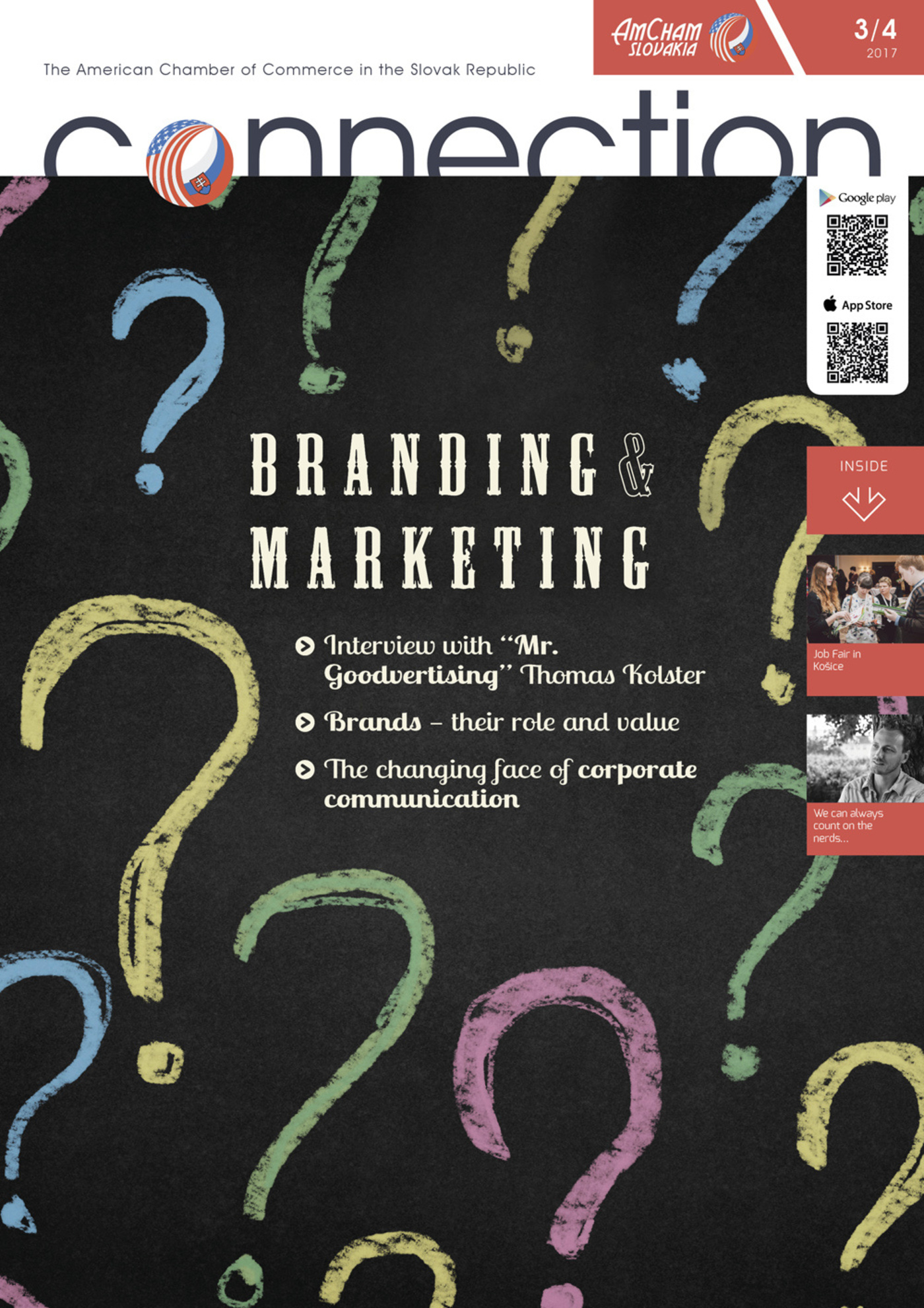There is no doubt that companies that focus on improving society and making their customers’ lives easier, healthier, and more sustainable are getting to the forefront. It is their meaningful activities which make them more trustworthy and their key stakeholders more involved. According to Thomas Kolster, an expert on sustainable communication and the author of the bestseller Goodvertising, advertisements today are often aimed only at supporting consumption. In order to be able to communicate meaningfully and to good purpose, companies cannot be afraid to be ground breakers in their area of business. Companies must learn to empathize with their target group – with their needs and expectations.
“Companies should be transparent, honest, and especially authentic. These are the three most important aspects. Brands need not be perfect because they are as diverse as people. And just like people, they make mistakes. However, if they honestly admit their faults or shortcomings and want to make them good, they have a chance to retain the trust of their customers and partners,” says Thomas Kolster.
We have selected several pieces of advice and examples of good practice from the recently published Recommendations from CSR Leaders:
Be authentic and show “the hidden part of the iceberg”
In 2011 the American retailer of outdoor clothing Patagonia was not afraid to publish an advert with a picture of their bestselling product with a caption “Don’t buy this jacket.” They honestly informed their customers of the negative impact that clothes production has on the environment and appealed to them to buy only what they really needed. The advertising campaign attracted, however paradoxical it may seem at first sight, more customers and increased the company’s profits. Customers decided to buy the only jacket they will need until the end of their lives from Patagonia.
Don’t be loud
Greenwashing means that organizations spend more money and time on promoting and advertising their environmental (“green”) interests than on real activities and solutions reducing their impact on the environment. A classic example might be hotel chains which encourage their guests to use towels or sleep in the same bed sheets for several days. However, these measures save only a very small amount of water and energy. Hotels should seek environmental solutions with greater impact, for example, when it comes to lighting, kitchens, or their car fleets.
Be knowledgeable about the issue you communicate
Using recyclable packaging is no longer a sufficient solution. Companies should set and promote sustainable trends. In 2016, Kaufland Slovenská republika, a supermarket chain, was the first to introduce a leaflet promoting products made with respect to people and the environment. The company demonstrated that its business includes a philosophy of responsible assortment building with emphasis on sustainability. In addition, Kaufland motivated its customers to buy sustainable products with a competition for vouchers.
Make your communication visually simple
Especially if you communicate difficult issues, use concise, interesting, and inspiring language. Shortenings are catchier and easier to remember, simple visualization is better than complex descriptions. Well-known responsible ice-cream makers Ben&Jerry’s are well aware of this; therefore, they teamed up with “The Guardian”. Their humorous multimedia series of stories on climate change entitled Too Hot to Handle made the relatively difficult topic more accessible. The stories were not only fun, but they also educated people and motivated them to take their own initiative.
Use an “inside-out” approach
If your employees do not think that the company in which they work is socially responsible, your company becomes untrustworthy when you try to describe it as ethical and responsible to other (external) stakeholders. This is the reason why the CSR strategy and its communication should, in the first place, always come from within your company. How to achieve this? It should suffice if you start dealing with simple problems such as better working environment, benefits for parents, or waste separation in offices. CSR activities are not about saving the whole world, as most people think. They are especially about small steps. Only after employees reach an acceptable level of commitment to corporate responsibility values it is suitable to involve them in local community or environmental projects and later in global issues. The British company Marks & Spencer may serve as a good example. In 2007, it made a plan of sustainable commitments called Plan A. The reason why the project became successful is that it had been incorporated into the organization. It is a part of each store’s business plan and each employee’s job description.
Tatiana Čaplová, Program Coordinator, Pontis Foundation



Follow us